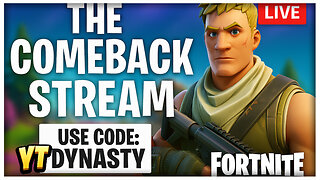Premium Only Content

Facebook marketing
Face book marketing
Face book marketing refers to the use of Face book's platform and advertising features to promote products, services, or brands to a target audience. With over 2.8 billion monthly active users, Face book provides a powerful and highly targeted advertising platform. Here are some key aspects of Face book marketing:
01. Face book Pages.
02. Face book Ads.
03. Targeting and Audience Segmentation.
04. Face book Pixel.
05. Messenger Marketing.
06. Insights and Analytics.
07. Community Engagement.
08. Video Content.
09. Face book Groups.
10. Split Testing.
It's important to stay updated with Face book's advertising policies, guidelines, and algorithm changes to ensure compliance and maximize the effectiveness of your Face book marketing strategies.
Face book Pages: Businesses can create Face book Pages to establish an online presence and connect with their audience. Pages allow businesses to share updates, post content, interact with followers, and build a community around their brand.
Face book Ads: Face book Ads enable businesses to create and display targeted advertisements to specific demographics, interests, and behaviors. Ad formats include image ads, video ads, carousel ads, and more. Ad campaigns can be optimized based on objectives such as brand awareness, lead generation, website traffic, conversions, and app installs.
Targeting and Audience Segmentation: Face book provides robust targeting options to reach specific audiences. Marketers can segment audiences based on factors like age, gender, location, interests, behaviors, and connections. Advanced options include lookalike audiences (based on existing customers), custom audiences (based on customer data or website interactions), and retargeting.
Face book Pixel: The Face book Pixel is a snippet of code that can be added to a website to track user behavior, conversions, and optimize ad targeting. It enables businesses to measure the effectiveness of their ads, retarget website visitors, and create custom audiences based on specific actions taken on the website.
Messenger Marketing: Face book Messenger can be used as a communication and marketing channel. Businesses can engage with customers, provide customer support, send targeted messages, and even create chat bots to automate certain interactions.
Insights and Analytics: Face book provides analytics tools that offer insights into the performance of Face book Pages, posts, and ads. Marketers can track engagement, reach, click-through rates, conversions, and other metrics to evaluate the effectiveness of their Face book marketing efforts.
Community Engagement: Face book offers opportunities for businesses to engage with their audience through comments, messages, and groups. Responding to comments, addressing inquiries, and fostering conversations can help build brand loyalty and customer relationships.
Video Content: Video content has gained significant popularity on Face book. Marketers can leverage Face book's video features, such as Face book Live, video posts, and video ads, to capture attention, share stories, and engage with the audience.
Face book Groups: Creating and participating in relevant Face book Groups can provide businesses with a platform to connect with their target audience, share valuable content, and establish themselves as industry experts. It fosters community engagement and allows for more organic interactions.
Split Testing: Face book's ad platform allows marketers to perform split tests, where different versions of an ad are shown to different segments of the target audience. This helps determine which ad variations perform better, allowing for optimization and improved ad effectiveness.
It's important to stay updated with Face book's advertising policies, guidelines, and algorithm changes to ensure compliance and maximize the effectiveness of your Face book marketing strategies.
-
 1:13:18
1:13:18
Wendy Bell Radio
6 hours agoPet Talk With The Pet Doc
34.3K56 -
 LIVE
LIVE
dieseldesigns
4 hours agoExploring Labs In the DARK! // Abiotic factor
11 watching -
 LIVE
LIVE
BBQPenguin_
3 hours agoDragonball Z - The Android Saga
189 watching -
 LIVE
LIVE
Total Horse Channel
4 hours ago2025 URCHA Futurity | Derby & Horse Show | Saturday
41 watching -
 LIVE
LIVE
DynastyXL
4 hours ago🔴LIVE: Fortnite The Comeback Stream Starts Here🎃
58 watching -
 1:38:57
1:38:57
njgaming23
2 hours agoCoffee and Morning vibes #rumbletakeover
6.33K -
 1:09:19
1:09:19
Ami's House
2 days ago $14.96 earnedWhen Defending Israel Backfires: Are We Pushing Our Last Friends Away? With Karys Rhea
177K183 -
 8:13
8:13
WhaddoYouMeme
20 hours ago $1.30 earnedThis Gets More Tragic By The Second
10.4K9 -
 40:47
40:47
SouthernbelleReacts
2 days ago $1.65 earnedThe Faculty (1998) | Back-to-School Horror Movie Reaction | Alien Invasion in High School!
17.8K5 -
 6:58
6:58
Adam Does Movies
19 hours ago $0.49 earnedCaught Stealing - Movie Review
11.5K3